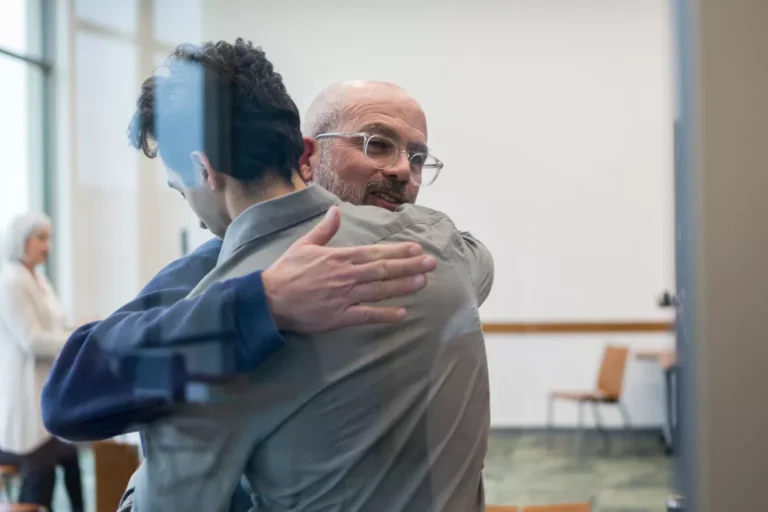For the Lawyer with a Family Member in Distress
Lawyers are helpers and fixers by nature. We are trained and paid to see, analyze and solve other people’s problems. When confronted by a family member’s alcohol or drug problem or mental health issue, usually a young adult child, we often assume the same skills that have served us so well in our legal careers would work to solve our family member’s problem. We may have even helped the family member with finances and legal matters (say with a DWI or other criminal charge) hoping that would resolve the difficulty – that our family member would surely have learned his or her lesson due to the consequences. But they have not. You are here because you have reached a point of frustration, maybe even a breaking point and want to know what to do and how best to help your loved one.

What can I do?
First and foremost, call the LAP. These illnesses and conditions affect the entire family and create dynamics within the family system that unwittingly perpetuate the illness. In order to best help your loved one, the LAP can guide you as to how to begin to stop the destructive cycle of disease within the family. The person afflicted with the illness often cannot begin a recovery process until the family has begun the recovery process and leads the way. There is not a quick fix or magic silver bullet. Recovery is a process, not an event.
What does the LAP do?
The LAP can refer you to interventionists and treatment resources appropriate for your family member. It is likely, however, that the reason you are visiting our website is that your repeated efforts to encourage your family member to get help have failed. We have lawyer volunteers who have been through what you are experiencing and who can help guide you towards solutions that worked for them. The LAP can provide experienced guidance about how to interrupt the family cycle of the disease and can refer you to providers and community resources in your area that can help you in the midst of this crisis. It is imperative that you continue in your own recovery efforts to increase the likelihood your family member might eventually find recovery. Many family members become exhausted trying to pick up all the balls the family member is dropping, and it is natural to get angry and feel hopeless. Although no one can make someone else get well, it is profoundly possible that if we change the way we respond to the illness that it will cause the affected person to re-evaluate their choices as well. It generally requires that we get support to get clarity about what is actually helpful and what is unintentionally enabling an illness.
How do I know if I should contact the LAP?
It is important to know that the LAP provides comprehensive assistance for any issue you are facing as a result of your loved one’s impairment or distress. These family issues can have far reaching impacts. Many lawyers report that they have become so mentally preoccupied with trying to “solve” their loved one’s problem that they could not focus on work, causing their work to suffer. Sometimes lawyers wind up struggling with their own depression in response to these circumstances. In addition, because it is uncomfortable to share these details with friends and coworkers, lawyers in this situation can feel increasingly isolated. All of this can take a real toll and we do not want this situation to impair your ability to practice law. The LAP can provide you with the support you need to cope with the issue in a healthier way.
For Family Members Concerned About a Lawyer or Judge
It can be devastating to witness a loved one suffering from alcohol or drug problems or a mental health issue. It can be even more devastating to witness that, for someone supposedly so smart, their seeming unwillingness to get help or make better choices in spite of your family’s love, anger, insistence and repeated confrontations and especially in light of consequences that may be piling up in the lawyer’s life. The destructive path that lawyers, judges, and law students sometimes find themselves on can directly affect their family relationships and hurt their loved ones. As someone who spends time with them outside of their workplace, you know better than anyone the severity of their symptoms and the ripple effect their behavior is having in your home. You are here because you have reached a point of frustration, maybe even a breaking point, and want to know what to do and how best to help your loved one.

What can I do?
First and foremost, call the LAP. These illnesses and conditions affect the entire family and create dynamics within the family system that unwittingly perpetuate the illness. In order to best help your loved one, the LAP can guide you as to how to begin to stop the destructive cycle of disease within the family. The person afflicted with the illness often cannot begin a recovery process until the family has begun the recovery process and leads the way. There is not a quick fix or magic silver bullet. Recovery is a process, not an event.
What does the LAP do?
Lawyers and judges often need treatment and support tailored to the individual. The LAP can refer you to interventionists and treatment resources appropriate for the lawyer or judge. It is likely, however, that the reason you are visiting our website is that your repeated efforts to encourage them to get help have failed. The LAP can provide experienced guidance about how to interrupt the family cycle of the disease and can refer you to providers and community resources in your area that can help you while we focus our attention on helping the lawyer or judge. The LAP can reach out to the lawyer or judge in distress via our volunteer network and offer an opportunity to initiate recovery and receive support. If those attempts are not initially successful, it is imperative that you and the family continue in your own recovery efforts to increase the likelihood the lawyer or judge might eventually find recovery. Many family members become exhausted trying to pick up all the balls being dropped, and it is natural to get angry and feel hopeless. Although no one can make someone else choose recovery, it is profoundly possible that if we change the way we respond to the illness that it will cause the lawyer or judge to re-evaluate their choices as well. It generally requires that we get support to get clarity about what is actually helpful and what is unintentionally enabling an illness.
How do I know if I should contact the LAP?
The LAP is not a disciplinary organization and is not connected to the grievance process of the State Bar. Our services are 100% completely confidential and any issues that you reveal about the lawyer or judge in distress are never reported to the discipline arm of the State Bar for any reason.
